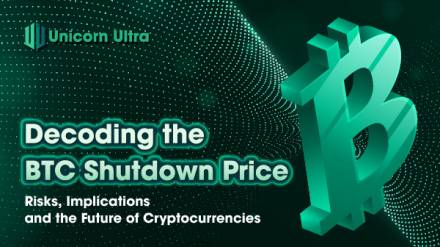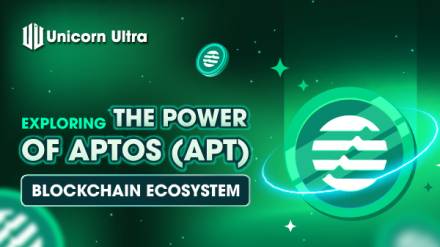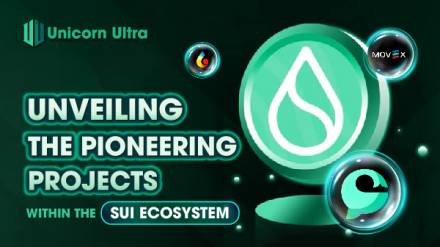In an era dominated by data privacy concerns and centralized control, decentralized social networks are gaining traction as an alternative to traditional platforms. These networks offer users increased control over their data and enable a more democratic and transparent online experience. In this blog post, we will delve into the concept of the top decentralized social networks, explore how they work, and highlight the top platforms in this burgeoning field. Additionally, we will discuss the benefits and drawbacks of these networks, providing insights into their potential impact on the future of online communication.
Table of Contents
- Top Decentralized Social Networks
- How do Decentralized Social Networks Work?
- Benefits of Decentralized Social Networks
- Drawbacks of Decentralized Social Networks
- Decentralized Social Networks vs. Traditional Social Networks
- How to use Decentralized Social Networks?
- Future of Decentralized Social Networks
Top Decentralized Social Networks
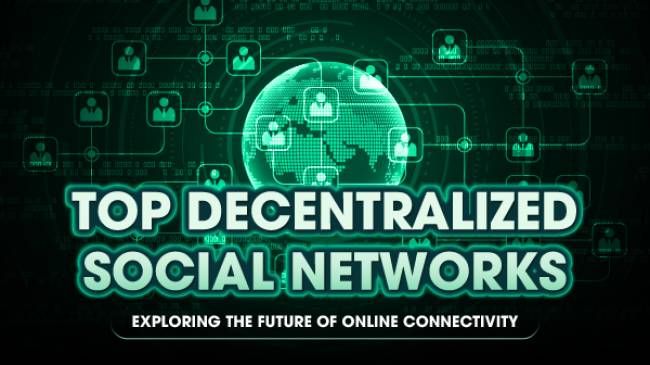
Mastodon
Mastodon is an open-source decentralized social network that allows users to create and interact within their own communities, known as instances. Users can connect with others in their instance or explore and engage with users from different instances. Mastodon emphasizes user control, privacy, and content moderation.
Diaspora
Diaspora is a community-run decentralized social network that prioritizes user privacy. It allows users to share updates, photos, and messages while maintaining control over their data. Diaspora connects users through "pods," which are independently operated servers.
Steemit
Steemit is a decentralized blogging and social media platform that rewards content creators with cryptocurrency. Users can earn Steem tokens based on the popularity and engagement their content receives. Steemit incentivizes participation and content creation, fostering a vibrant community.
How do Decentralized Social Networks Work?
Decentralized social networks leverage blockchain technology and peer-to-peer networks to facilitate user interactions. Blockchain, a distributed ledger system, enables the storage and verification of data across multiple nodes. By utilizing this technology, decentralized social networks ensure data integrity and prevent unauthorized access.
Users on decentralized social networks typically have greater control over their personal information, including the ability to choose how their data is shared and accessed. Content is stored directly on users' devices or distributed across multiple nodes, reducing the risk of data breaches and censorship.
Benefits of Decentralized Social Networks
- Enhanced Privacy: Decentralized networks offer increased privacy by minimizing the collection and control of user data by centralized entities. Users have greater control over their personal information and can choose how it is shared.
- Data Ownership: In decentralized social networks, users retain ownership of their data. This ownership prevents data exploitation by third parties and promotes transparency in data handling practices.
- Community Empowerment: Decentralized networks facilitate the creation of user-driven communities. Users have the freedom to create their own instances or pods, fostering diverse and independent communities that reflect their values and interests.
Drawbacks of Decentralized Social Networks
- Complexity: Decentralized social networks can be more complex to navigate and understand compared to traditional platforms. The distributed nature of data storage and the reliance on blockchain technology may present a learning curve for some users.
- Limited User Base: Decentralized networks often have smaller user bases compared to established social media giants. This can impact the reach and visibility of content within these networks.
Decentralized Social Networks vs. Traditional Social Networks
Decentralized social networks differ from traditional social networks primarily in their approach to data ownership and control. While traditional networks centralize user data, decentralized networks prioritize user privacy and ownership. Decentralized networks also offer increased transparency and empower users to shape their online communities.
However, traditional social networks generally have larger user bases, well-established features, and greater mainstream adoption. They often provide a more familiar and accessible experience, making them attractive to a wider audience.

How to use Decentralized Social Networks?
Using decentralized social networks involves interacting with platforms that operate on blockchain technology and are not controlled by a central authority. These networks aim to provide users with greater control over their data and privacy. Here's a general guide on how to use decentralized social networks:
- Choose a Decentralized Social Network: There are several decentralized social networks available, each with its unique features and focus. Research and select a platform that aligns with your preferences and needs.
- Create an Account: Sign up or create an account on the chosen decentralized social network. This may involve setting up a wallet or linking an existing wallet to the platform.
- Understand the User Interface: Decentralized social networks might have different user interfaces compared to traditional social media platforms. Take some time to familiarize yourself with the layout, navigation, and features.
- Secure Your Wallet: As decentralized social networks are blockchain-based, you'll need to secure your wallet and private keys. Use strong passwords and consider using hardware wallets for added security.
- Manage Your Data: Decentralized social networks often give users greater control over their data. Understand the platform's data management features, such as data sharing settings and data deletion options.
- Connect with Others: Start connecting with other users on the decentralized social network. Follow, friend, or join communities and discussions that interest you.
- Post and Share Content: Like traditional social media, you can post and share content on decentralized social networks. Share updates, images, videos, or other media with your network.
- Earn and Use Tokens: Some decentralized social networks reward users with tokens for their activity and engagement. Understand how the token economy works on the platform and how you can use or exchange tokens.
- Respect Community Guidelines: Decentralized social networks often have community guidelines to maintain a positive and respectful environment. Adhere to these guidelines to ensure a pleasant experience for all users.
- Explore DApps and Features: Many decentralized social networks integrate with decentralized applications (DApps) that offer additional functionalities. Explore the DApps available on the platform and try out different features.
- Stay Informed: Keep yourself updated on the latest developments and updates related to the decentralized social network. Follow the official channels and community forums to stay informed.
It's essential to note that decentralized social networks are still relatively new and may have limitations and learning curves. Expect a different user experience compared to centralized platforms, but appreciate the added benefits of increased privacy and data ownership. As the decentralized space evolves, more features and improvements are likely to emerge.
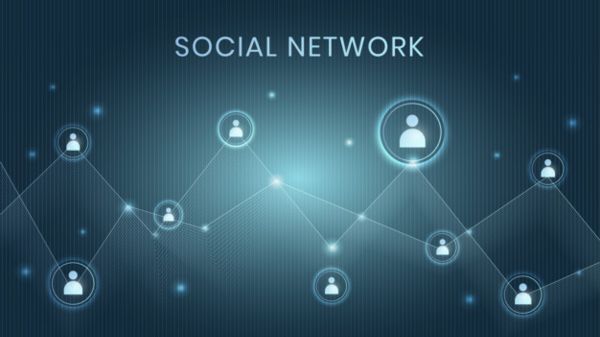
Future of Decentralized Social Networks
The future of decentralized social networks holds significant promise as more individuals and communities become aware of the benefits of decentralization and data ownership. Decentralized social networks aim to address some of the key challenges and concerns associated with traditional centralized social media platforms, such as data privacy, censorship, and control over user-generated content. Here are some potential trends and developments that could shape the future of decentralized social networks:
- Data Ownership and Privacy: Decentralized social networks empower users to have greater control over their data, allowing them to own and manage their information. As data privacy becomes a growing concern, decentralized networks could attract users seeking more secure and private communication.
- Censorship Resistance: With decentralized social networks, content moderation and censorship are typically governed by community-driven mechanisms rather than centralized authorities. This could lead to more censorship-resistant platforms, where users have a stronger voice in the content they create and consume.
- Interoperability and Cross-Platform Integration: Future decentralized social networks may work on interoperable protocols, allowing users to seamlessly interact with multiple platforms and apps while preserving data portability.
- Tokenomics and Incentive Mechanisms: Decentralized social networks may utilize tokenomics and incentive mechanisms to reward content creators and community contributors. Users could earn tokens for engaging in the network, which may lead to increased user participation and loyalty.
- Enhanced Content Monetization: Decentralized social networks could provide better opportunities for content creators to monetize their work directly from their audience without relying on intermediary platforms.
- Reduced Advertising and Data Harvesting: As user data ownership becomes more emphasized, decentralized social networks might reduce reliance on targeted advertising and data harvesting, shifting towards more transparent and consent-based advertising models.
- Community Governance: Decentralized networks often operate under community-driven governance models, allowing users to have a say in platform rules, policies, and upgrades. This approach fosters a sense of ownership and trust within the community.
- Scaling Solutions: As decentralized social networks grow, there will be a need for efficient and scalable solutions to handle increased user activity and data storage. Layer 2 solutions and advancements in blockchain technology may address scalability challenges.
- Cross-Chain Integration: Decentralized social networks could leverage cross-chain solutions to operate on multiple blockchains, expanding their reach and user base.
- Inclusivity and Global Reach: Decentralized social networks have the potential to be more inclusive and accessible, as they are not bound by geographic or political restrictions, providing access to users worldwide.
Despite the promise, challenges remain in terms of user adoption, technical scalability, and regulatory compliance. However, as the technology evolves, and awareness about data privacy and decentralization grows, decentralized social networks are likely to play a more prominent role in the future of social media.
Conclusion
These top decentralized social networks represent an exciting frontier in the world of online connectivity. These networks prioritize user privacy, data ownership, and community empowerment. While they may face challenges such as complexity and limited user bases, their potential to revolutionize the way we interact online cannot be overlooked. As individuals become more conscious of their digital footprint, decentralized social networks offer an alternative that puts users back in control of their data and online experiences. With the rapid advancement of blockchain technology, we can expect to see further innovation and growth in the decentralized social network space in the years to come. Follow U2U to update more knowledge about blockchain



